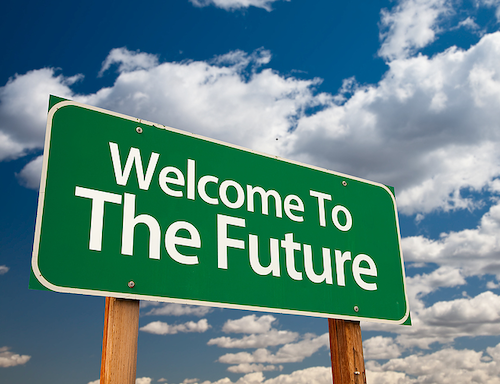Genealogists generally spend their spare time researching and thinking about live in the past. However, an article by Victoria Song and published in the Gizmodo web site got me thinking about the opposite: life in the future.

The article states (in part):
Owning things used to be simple. You went to the store. You paid money for something, whether it be a TV, clothes, books, toys, or electronics. You took your item home, and once you paid it off, that thing belonged to you. It was yours. You could do whatever you wanted with it. That’s not how it is today, and by 2030, technology will have advanced to the point that even the idea of owning objects might be obsolete.
Many a think piece has been written about how Millennials aren’t as interested in owning things as their predecessors. After decades of Boomers keeping up with the Joneses, Millennials were supposedly “more about the experience” than physical goods. There’s a kernel of truth in that, but the shift to services was telegraphed a long time ago.
Back in 2016, the World Economic Forum released a Facebook video with eight predictions it had for the world in 2030. “You’ll own nothing. And you’ll be happy,” it says. “Whatever you want, you’ll rent. And it’ll be delivered by drone.”
“Everything you considered a product, has now become a service,” reads another WEF essay published on Forbes. “We have access to transportation, accommodation, food, and all the things we need in our daily lives. One by one all these things became free, so it ended up not making sense for us to own much.”
The WEF’s framing is overly optimistic, but this is the future we’re rapidly hurtling toward. I rent my apartment, and therefore, all the home appliances in it. If I wanted, I could rent all my furniture and clothes. Sure, I have my own computer and phone, but there are plenty of people who use company-issued gadgets. And if I didn’t want company-issued items, I could always rely on electronics rentals. I like cooking and grocery shopping, but I could just sign up for a meal kit service and call it a day. I wouldn’t even need appliances like toasters, rice cookers, blenders, air fryers, or anything beyond a microwave. To get around, there are Citi Bikes, Uber, and Zipcar.
You might be wondering—what’s the problem here? Consumerism is exhausting, and as far as housing goes, ownership isn’t the golden ideal it’s cracked up to be. In some ways, not owning things is easier. You have fewer commitments, less responsibility, and the freedom to bail whenever you want. There are upsides to owning less. There’s also a big problem.
You can read the entire thought-provoking article at https://gizmodo.com/in-2030-you-wont-own-any-gadgets-1847176540.